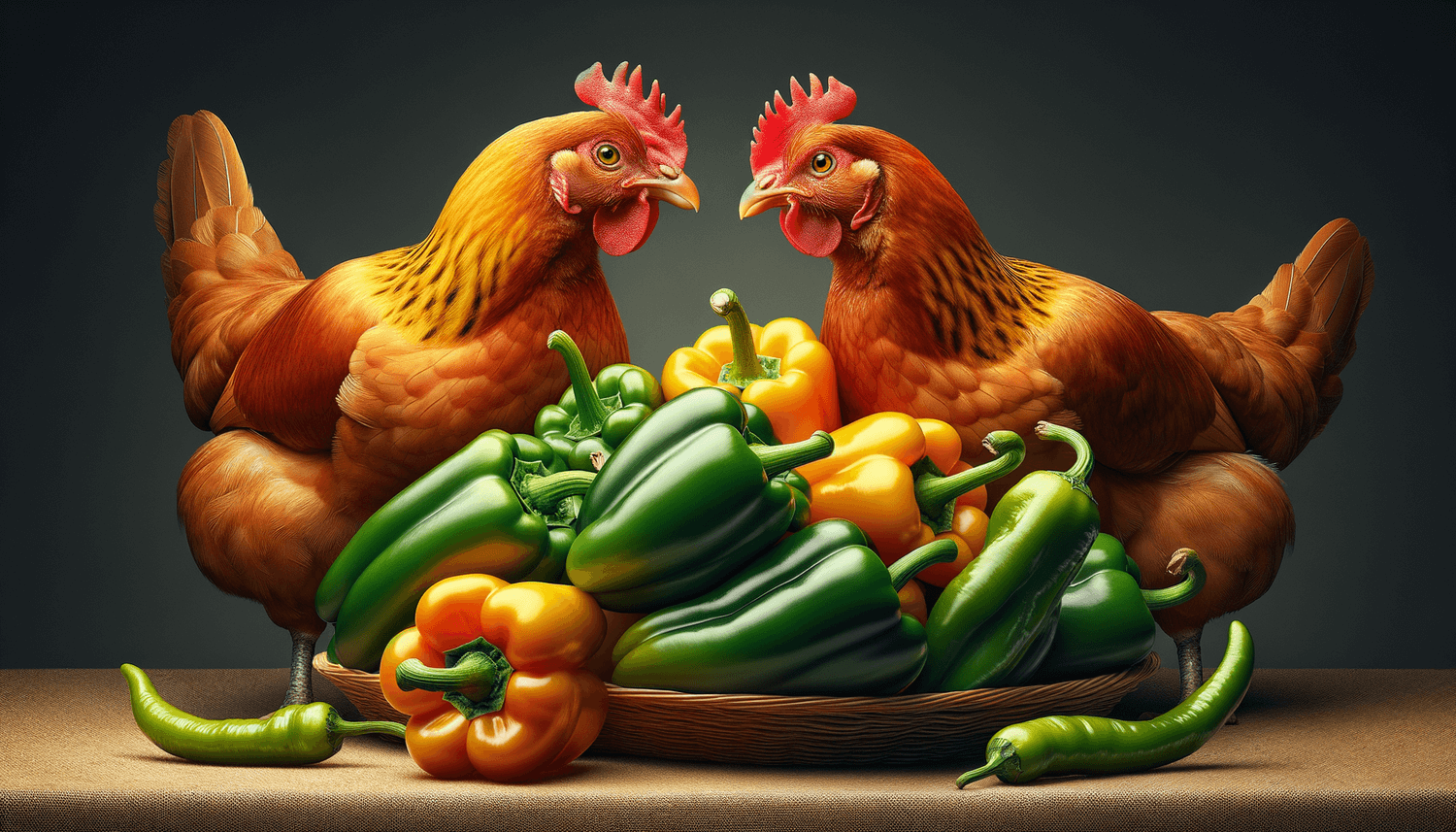Get ready to spice up your chickadees’ diet because today we’re exploring the colorful world of capsicum! 🌶️ If you’ve ever wondered if your fluffy feathery friends can safely munch on these vibrant veggies, you’ve come to the right place. In this blog post, we’ll dive into the great capsicum debate, unraveling the mysteries of a balanced chicken diet, the benefits and potential risks of adding capsicums to their menu, and even how to dish it up. So, grab your gardening gloves and let’s pepper into the ins and outs of chickens and capsicum! 🐔
Can chickens eat capsicum?
Yes, chickens can safely eat capsicum! It is not only safe for them, but also a nutritious treat. Capsicums are rich in vitamins and minerals, which can be beneficial to your flock’s overall health and well-being.
A balanced diet for happy hens
Just like humans, chickens thrive when they are fed a well-balanced diet. Providing a variety of nutrients is essential to ensure the health and happiness of your backyard flock. A chicken’s diet should primarily consist of a high-quality chicken feed, which should make up around 80-90% of their diet. Chicken feed is specifically formulated to meet the nutritional needs of your chickens, supplying them with the right balance of protein, vitamins, and minerals.
The remaining 10-20% of their diet can consist of treats like fruits and vegetables. While capsicums and other treats can provide additional nutrients and variety, it’s important not to over-indulge your chickens. Providing too many treats can disrupt the balance of nutrients they receive from their main chicken feed. So, remember to keep treats in moderation and make their balanced diet a priority.
Nutritional value of capsicum for chickens.
Feeding capsicum to chickens can be quite beneficial, as they provide an array of essential nutrients that contribute to their overall health. Capsicums are rich in vitamins A, C, and E, which play a vital role in maintaining your flock’s immune system, supporting tissue repair, and promoting healthy skin and feathers. These vitamins can also benefit the overall health of egg-laying hens, supporting better egg quality and production.
Additionally, capsicums contain various important minerals, such as potassium, calcium, and magnesium. Potassium helps to regulate heart function and maintain electrolyte balance, while calcium is crucial for strong eggshells and healthy bones. Magnesium aids in multiple body functions, including muscle and nerve function, and the creation of proteins and energy.
Another advantage of feeding capsicums to your chickens is hydration. Capsicums have a high water content, which can help to keep your chickens well-hydrated, especially during hot summer days. Considering a well-hydrated flock is more resistant to heat stress, capsicums can be a useful treat in maintaining your chickens’ overall well-being during warmer months.
Nutrition table of capsicum for chickens.
| Information | Description |
|---|---|
| Nutritional Value | Rich in vitamins A, C, and E, as well as minerals like potassium, calcium, and magnesium |
| Suggested Serving Size | Treats should make up 10-20% of a chicken’s diet, including capsicum |
| Safe Feeding Practices | Feed in moderation, not as a main food source |
| Preparation | Wash thoroughly, remove seeds, and chop into bite-sized pieces |
| Potential Risks | Overfeeding can lead to nutrient imbalance and decreased egg production |
| Hydration | High water content helps to keep chickens hydrated, especially during hot weather |
| Digestion | Chickens can easily digest capsicum and benefit from its nutrients |
| Seasonal Availability | Available fresh during summer and fall, but can be found year-round in most supermarkets |
| Other Benefits | Can improve overall health, feather quality, and egg production in laying hens |
Prepping Capsicum: The Right Way to Feed
Now that we’ve covered the benefits of capsicum, let’s talk about how to properly prepare this colorful treat for your backyard flock. Cleanliness and presentation can make all the difference in ensuring your chickens consume capsicum safely and happily.
Start by thoroughly washing your capsicums to remove any dirt, pesticides, or chemicals. Next, remove the seeds from the capsicum, as they can potentially irritate your birds’ digestive systems. Finally, cut the capsicum into bite-sized pieces, making it easy for the chickens to peck and enjoy.
What Capsicums to Avoid
While feeding capsicums to your chickens can add variety and nutrition to their diet, it’s important to recognize that not all capsicums are created equal. Sweet capsicums, such as bell peppers, are ideal for chickens due to their lower level of heat and pleasing taste. However, it’s best to avoid feeding them hot peppers or chilies, as these can cause digestive upset and discomfort for your flock.
Exploring the World of Treats
Chickens are naturally curious creatures and love to explore and try new things. Capsicum is just one of the many treats you can provide to your backyard flock in moderation. Remember, a well-balanced diet is crucial for your chickens, and considering the nutritional value of the treats you give them can help ensure they remain healthy and happy members of your family.

















